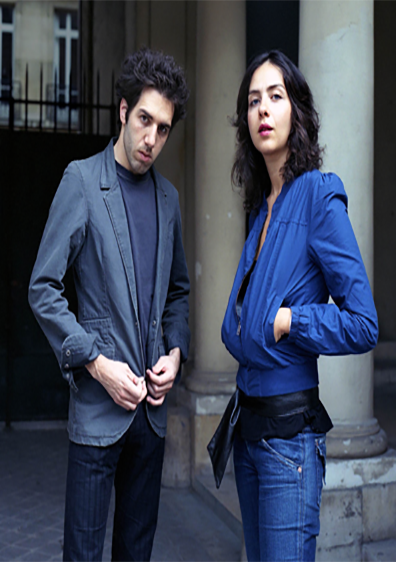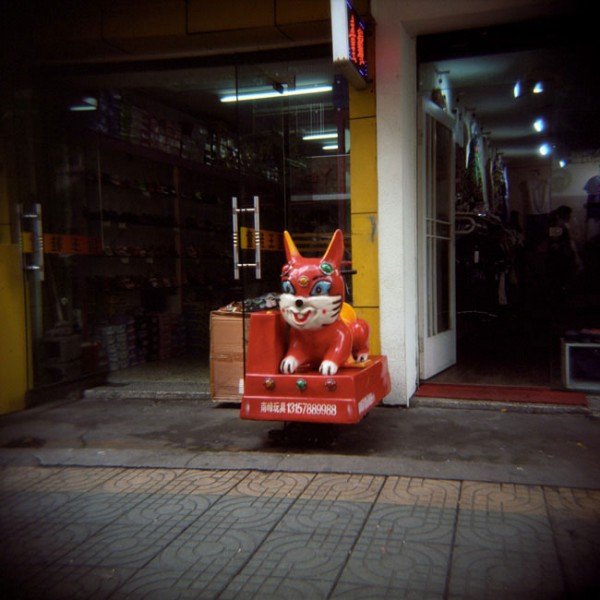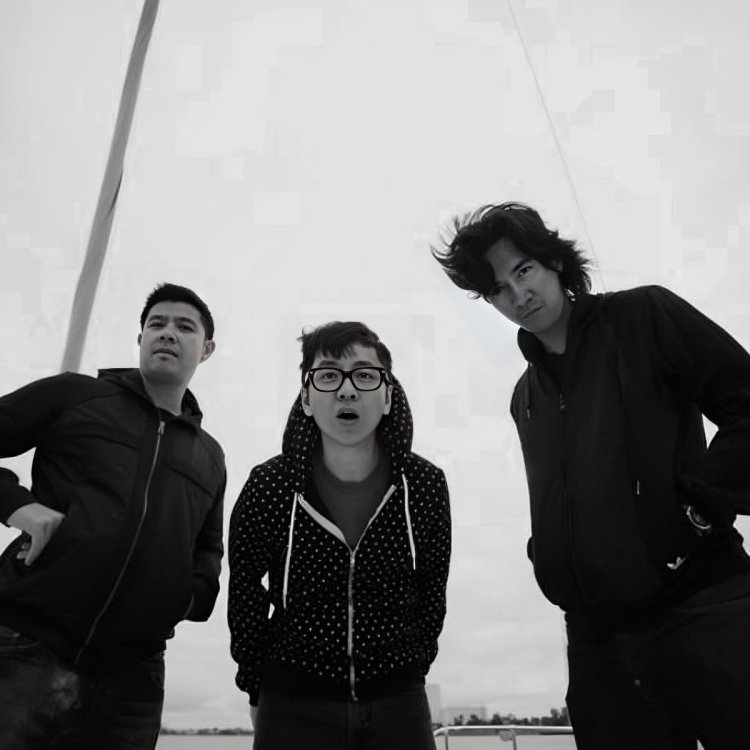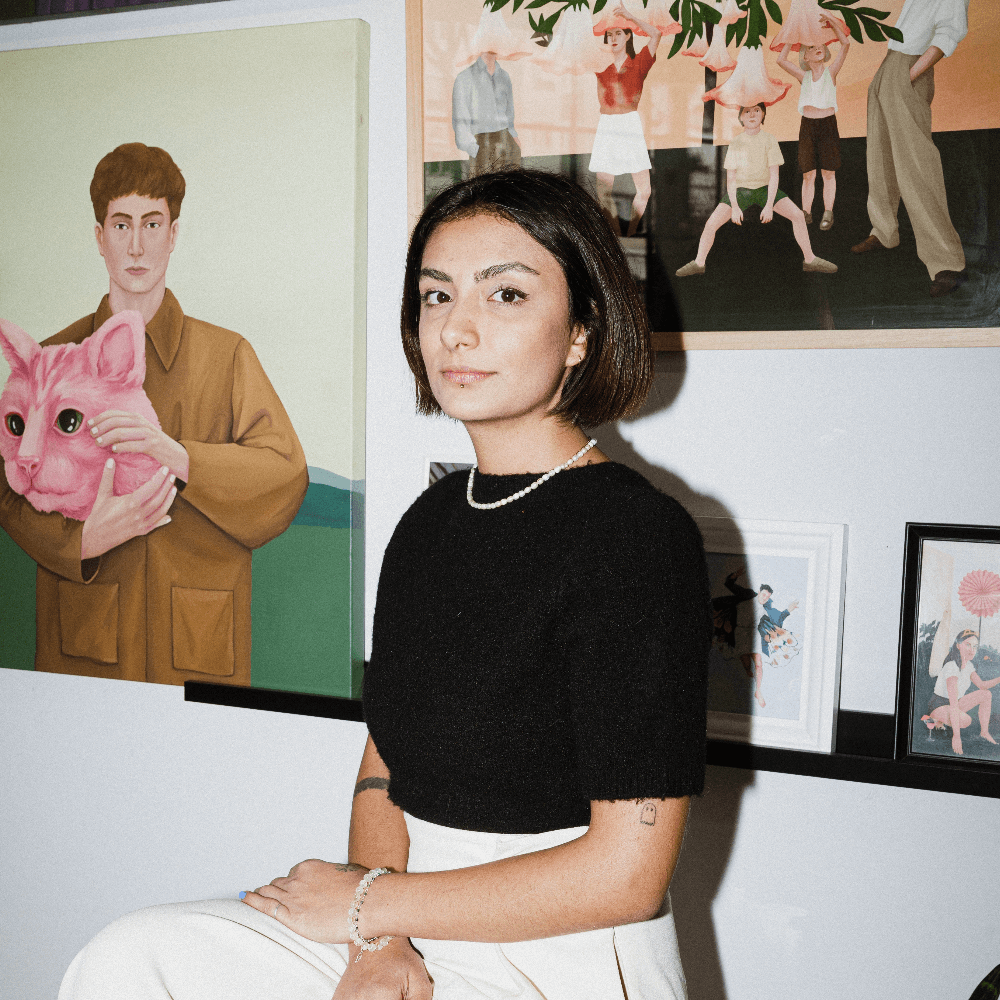Lebanon –
Wildly defiant of restrictive categorization, Marc Codsi has been indispensable in the proliferation and development of the fledgling Lebanese music scene as it exists today. His eclectic ventures, from film scores, playing the guitar for the band Scrambled Eggs, Zeid and the Wings, and creating the electro pop ensemble Lumi, have rendered him irreversibly distinguishable. His creation of an instantly recognisable and evocative sound underlines daring new perspectives. In no way exhausted, either musically or ideologically, he speaks to Emaho about his solo venture Faded Postcards, its history and context in the current dynamics of independent Lebanese music, and his understanding of music, both his own and otherwise.
Emaho : The first quality you are credited with is your experimental perspective, your inclination to play with boundaries between genre and convention. What drove you to this? I’m not simply asking about musical influences but social, political, personal events or occurrences that might have played a part in this.
For my part, I don’t see boundaries as limits, but as opportunities to ask ourselves why do those frontiers exist. Genres are global movements that unite people, but they also separate people into crowds; I’m not sure this is justified. Humans are complex, we can go from one emotion to a different one very fast, and sometimes they are contradictory. Musical genres have all specific emotions linked to them. Why not combine them to express that complexity that characterizes us.
Overall it’s a natural process. It doesn’t go through any intellectualization.
Emaho : Much of your music, whether it be Scrambled Eggs, Lumi or composing film scores has been evocative, ambient and overarching, aiming towards the act of reminiscing and free association. Would you say the music acts as a means towards achieving the end, i.e. the mental act of recollection?
I’m not sure what the purpose of music is, but for me I care about creating a world that becomes independent of my own, and that I can immerse myself in. Brian Eno has a very interesting talk where he says humans engage in activities such as religion, drugs, sex or art to be able to surrender. We shouldn’t underestimate our need to surrender, especially in the over-consumption we-can-control-everything world of today. Music can definitely help to achieve that.
 Image© Raymond Gemayel
Image© Raymond Gemayel
Emaho : Faded Postcards is fragmentary, almost un-tethered in its entirety. Based off the idea of reaching the ineffable core of one’s specific individuality, it is radically genre-bending. Could you tell us about the origin, maturation and possible continuation of this concept?
My first music performances were within the improvised and experimental scene in Beirut in the early 2000s. The mindset was that music is a collection of noises and textures, not notes and chords. This abstract approach close to musique concrete ideology remained my philosophy in all my works. I enjoyed very much playing guitar-oriented rock with Scrambled Eggs, then electro-oriented rock with Lumi—both fulfilled different parts in me, but then I felt the need to dip into those experiences to create something unique that would be more personal. That is how the idea of Faded Postcards started. I had just come back from a trip I did on my own in Iceland, and I had all these images of amazing landscapes in my head and the taste of another world, where all the elements interact and blend in very inspiring ways. I tried to implement the same kind of interactions in my music using textures, sounds and some recordings I did over there like of sulfuric rivers and walks on snow.
Each piece is like the time stretching of a moment, a feeling, a sensation I wanted to investigate.
The next album I did last year, ‘Works and Coincidences’, is also introspective, but its approach is different. My attempt was to reach the same feelings using more conventional musical tools. The textures are less abstract, the instruments more identifiable. The search is endless.
Emaho : In 2008, you formed Lumi with Mayaline Hage, and released the album, Two Tears in Water, during one of the most volatile times in Beirut’s recent history, which saw gunfights in the streets and an airport lockdown that prevented you from traveling to Dubai for a gig. You called it an “anti-memory” album in one of your interviews. Would you say, at that point, you detached yourself from your usual philosophical preoccupations and undertook a new one?
One question that is fundamental to artists and that is very relevant here in Lebanon is the question of identity. We have endless interrogations regarding our origins, our past, and what defines us. Even the language we use is an indication of a certain vision of that identity. After the civil war most of the artistic work revolved around that, and around trying to understand or to digest what happened to us. Around 2004, there was a big boom happening in Beirut, we could feel it, finally things seemed to be heading somewhere, the trajectory was not circular as it has always been but forward. Lumi started around that time, when our generation finally wanted to look forward and not backward; we wanted to go beyond all those identity issues and create something new, something fresh. In that sense, I called this album that represented that era an anti-memory album. Of course all that turned out to be very short-lived, and we went back to our circular motion—i.e., always coming back to our starting point—soon afterwards, with the assassination of Hariri in 2005 and the Israeli invasion of 2006, which persists till this day.
Emaho : Your name comes up as one of the architects of the modern Lebanese ‘Underground’. To the uninitiated, how would you describe this as yet undefined space of artistic production?
I think the term underground is mostly a label, a romantic way to describe and combine different events happening simultaneously.
I never felt being underground frankly. The real underground we don’t really hear about, and it won’t have articles written about it in newspapers and magazines. It’s not like there was a censorship or danger in any thing we were doing. I was just among the first wave of musicians who wanted to play and perform their own music. The infrastructure of a music scene—i.e. music shops, live scenes, modern recording studios, decent sound engineers, labels, managers, bookers, critics etc.—didn’t exist, and it was very exciting to be part of their formation. Today the infrastructure exists, and it allows many musicians to express themselves and be taken seriously. It’s a great thing.
In a mature scene, the underground is like a laboratory where experiments are being done. Some end up reaching the public and others we never hear about.
Emaho : What role do you feel art, and specifically music, plays in a conflict-ridden zone, as that of Lebanon? Do you feel it succeeds in declaring expression of anguish? To put it simply, does it make a difference?
As an act of freedom of expression, art is essential to all societies. For me it is an essential part of my balance. Good art will reinvigorate you and inspire you and will make you think and create and evolve. It makes the unimaginable possible, and the crazy desirable. It’s a unique connection with a superior dimension, something greater than us. There is this amazing video of the Palestinian refugee camp in Yarmouk-Syria where some men are standing around a dusty detuned piano in the middle of a totally devastated street, and they are singing optimistic songs about the end of the nightmare they are living and the return of the displaced population. It’s beyond surreal and it is very moving. These men must have gathered there many hours and during many days to write these songs and to rehearse them. I’m sure it must have given them a reason to wake up in the morning, the feeling they are making something important, that maybe it will make a difference. It probably won’t stop the war, nor their hunger, but as individuals I’m sure singing helped them to survive, and to keep in touch with their humanity. Without Art we loose our humanity.
Emaho : Since you have experienced the very bowels of war, you seem like the right person to ask this. Do you believe art could flourish or even exist without conflict and tragedy?
Happiness I’m afraid would be a boring state artistically speaking. Our philosophy, influenced by ancient Greece, puts tragedy at the center of our existence; and it’s not only about war: it’s about the metaphysics of existence itself. Tragedy lies in our own conscience of our existence and our perishing. But if we will be able one day to remove all fear from our existence, will we still feel the need to create? or to communicate with something greater than us?
 Image© Tanya Trablousl
Image© Tanya Trablousl
Emaho : You have mixed for Mashrou Leila, one of the most visible representatives of the Middle East musical existence. Could you talk about the experience?
I love messing around with existing songs, to explore a little element in them, or allow them to take unexpected turn like in a Bunuel movie where you always have this moment where you ask yourself, ‘is this real?’, and you don’t know how to interpret it.
I was following Mashrou Leila since the first time I saw them live in 2009. Some of the members are fans of Lumi. When they launched their first album, we talked about remixing a song. I chose ‘Fasateen’.
Art & Culture Interviewed by Shreya Bose
Feature Image © Florent Meng











